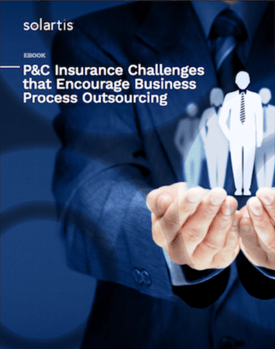In pursuing productivity and efficiency, understanding the complexities of human psychology can be a game-changer. One psychological phenomenon that sheds light on our cognitive processes is the Zeigarnik Effect. Named after Soviet psychologist Bluma Zeigarnik, this concept relates to how unfinished or interrupted tasks occupy more mental space than completed tasks.
Implications of the Zeigarnik Effect
The central idea of the Zeigarnik Effect is that our minds connect more strongly with unfinished tasks than with those that have been completed. When we leave tasks incomplete, they create tension in the mind, sometimes called ‘cognitive dissonance.’ This mental tension is a persistent reminder that we must focus on the unfinished task. A completed task is released from our cognitive load, making them less likely to occupy our thoughts.
Cognitive dissonance is uncomfortable. The mind creates ways to alleviate this discomfort. The most obvious way to do that is to finish a task - moving it from the brain’s ‘to-do’ list to ‘done’.
In execution, though, there is more to this activity beyond the simplistic metaphor of crossing a task off a list. At work, we often face more simple tasks than complicated ones. Because the unfinished tasks are taking up greater mental space, however, they can subconsciously elevate the importance of simple administrative tasks. They provide us with a sense of satisfaction - the relief of the cognitive dissonance - that is out of proportion to the actual value of the task.
Consider this in light of the 80/20 Rule, also known as the Pareto Principle. The Pareto Principle says that 80% of the consequences come from 20% of the causes. This principle is commonly used in business to illustrate that 20% of business activities will impact 80% of revenue or other results.
The Zeigarnik Effect causes us to inadvertently prioritize 80% of tasks, which are higher in number than 20% of tasks, which actually add the most value. The inherent satisfaction of completing simple tasks elevates their importance - but those tasks are not likely to be of the 20% that will have the greatest impact on results.
Therein lies the problem.
How Does this Relate to BPO?
A trusted business process outsourcing (BPO) partner (like Solartis) can help your business resolve this contradiction and channel resources in accordance with the Pareto Principle: focusing on the more complex tasks that have greater actual value while leaving the simpler administrative tasks in the hands of a trusted partner.
1. Task Segmentation and Delegation
Engaging a trusted partner for BPO can help a business break down complex tasks into smaller, more manageable units and delegate them to experienced BPO professionals. This approach aligns with the principles of the Zeigarnik effect. Assigning these tasks to an outside partner means the internal team can focus on other responsibilities, and resources align more with the Pareto Principle.
2. Outsourcing Repetitive and Mundane Tasks
Solartis BPO experts excel at handling the repetitive, mundane tasks that can become mental clutter for your team and drain valuable cognitive energy. By outsourcing these tasks, individuals and organizations can clear the mind of low-value tasks. This enables individuals to concentrate on more critical (and intellectually stimulating) work in alignment with the Zeigarnik effect.
3. Total Task Transparency
One concern that businesses have when engaging a BPO partner is visibility into task status. Are the outsourced tasks being completed as expected? Without visibility and confidence, administrative tasks cannot be fully offloaded to the BPO partner.
At Solartis, we understand that a lack of transparency means a client would get less-than-optimal results from BPO. That’s why we have implemented a streamlined approach to task progress and completion and offer our clients total visibility into tasks through the OptimX dashboard.
4. Task Prioritization and Optimization
The Zeigarnik Effect results in a subconscious overestimation of a task’s value. Reducing the clutter of lower-priority tasks means it’s easier for a business to focus on the top-value 20% of activity, which drives 80% of the results.
Individuals can reduce the mental tension associated with incomplete tasks by identifying the high-priority tasks and delegating the others to a trusted partner like Solartis. This approach enhances productivity, fosters a sense of accomplishment, and ensures that essential tasks are completed efficiently.
The Zeigarnik Effect is most related to how people prioritize tasks and gives insight into how an incomplete or interrupted task can subconsciously take on an inflated significance simply because it is incomplete.
Understanding the principles behind this phenomenon links to the beneficial psychological effect of outsourcing on a client’s internal team. Armed with this understanding; businesses can optimize productivity - and the strategic impact of their team’s efforts - with the help of a trusted BPO partner like Solartis.
Solartis offers specialized insurance business process outsourcing services, allowing clients to leverage the power of the Zeigarnik effect. Additionally, customers can redirect their own teams to emphasize the more intensive, in-depth work that results in meaningful business results like increased revenue, higher retention rates, and accelerated business growth.
Solartis BPO services, including task segmentation and delegation, outsourcing repetitive tasks, total transparency and visibility, and task prioritization and optimization, align with cognitive processes. With Solartis BPO, your team can unlock productivity, focus on core responsibilities, enhance efficiency, and achieve long-term strategic goals.







